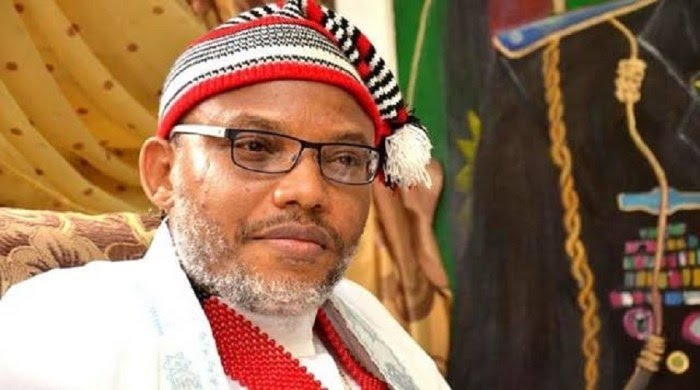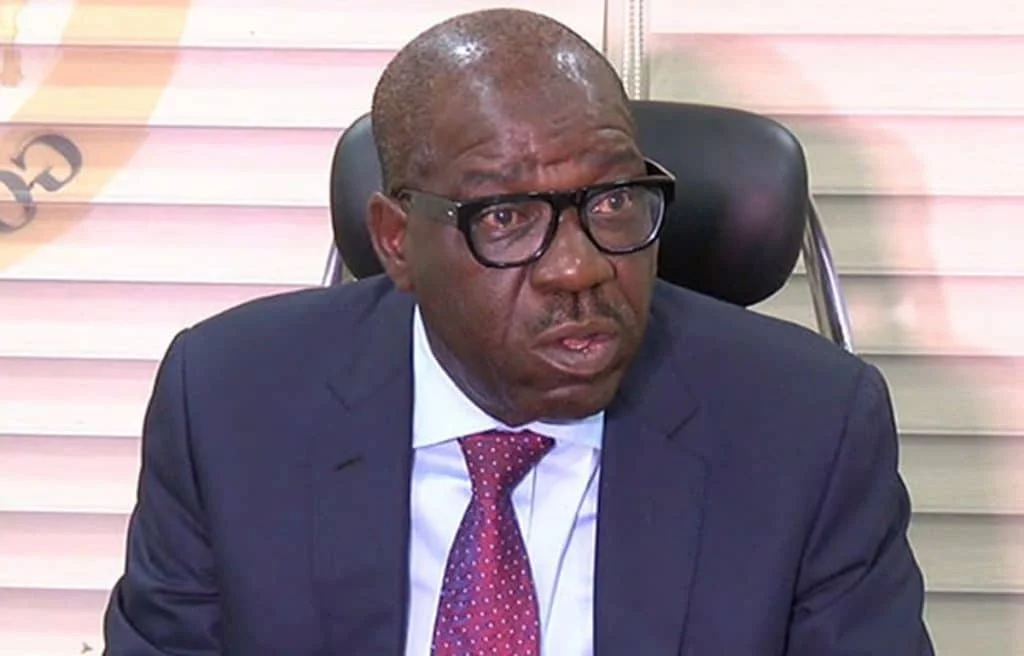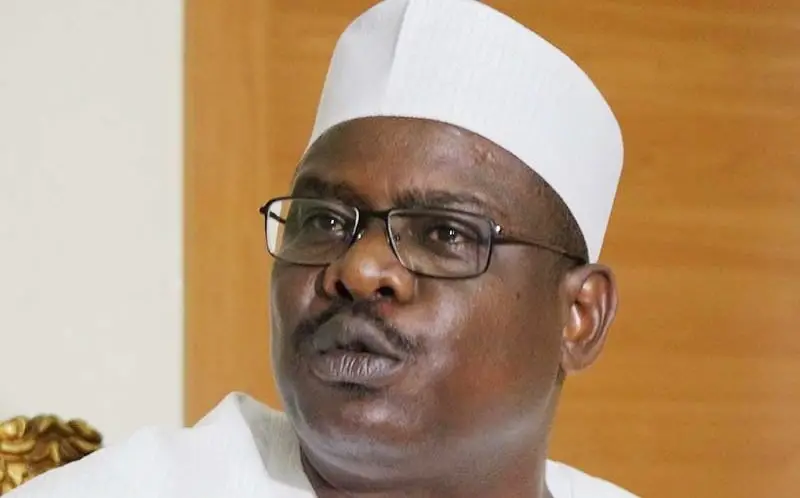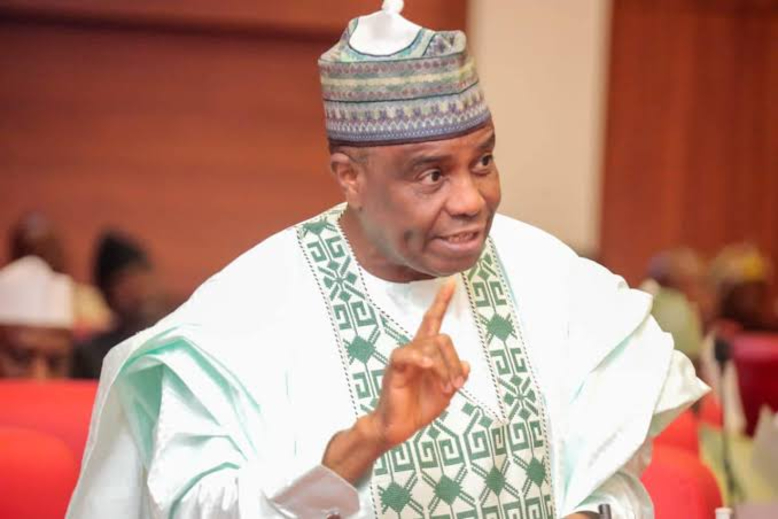News
Kanu’s Release Tops Agenda As Obasanjo Meets Ohanaeze Leaders

Talks about the release of the detained leader of the Indigenous People of Biafra, Mazi Nnamdi Kanu; insecurity in the South-East region, amongst others, topped the agenda of the meeting held between former President, Chief Olusegun Obasanjo, and some leaders of Ohanaeze Ndigbo Worldwide.
The Secretary-General of the apex Igbo socio-cultural organisation, Chief Okey Emuchay, had, on Friday, disclosed that Obasanjo was in a closed-door meeting with the President of the group, Chief Emmanuel Iwuanyanwu, in his Owerri, Imo State home.
Emuchay, in a statement made available on Saturday, noted that Obasanjo discussed issues of ‘mutual interest’ with the Ohanaeze chieftains at the meeting which lasted several hours.
He also described the meeting as ‘very symbolic and crucial’, adding that the deliberations were fruitful.
He further noted that the outcome of the meeting would soon manifest and would be appreciated by Igbo people worldwide.
READ ALSO: Supreme Court’s Refusal To Free Kanu Is Rape Of Justice – MASSOB
The statement titled, “Issues of mutual interest were discussed”, read in part, “Our president-general informed Chief Obasanjo that Nigeria should erect monuments in his (Obasanjo’s) name for the sacrifices he has made.
“He recalled Obasanjo’s role in ending the civil war with the slogan ‘no victor, no vanquished’.
“Iwuanyanwu lauded Obasanjo’s patriotic and diplomatic initiatives as president that resulted in the country’s debt cancellation and his administration’s rejuvenation of the economy.
“He assured the former president that the Igbo people would bestow a befitting honour on him at an appropriate time for his love for the region.
READ ALSO: IPOB Goes Spiritual, Organises Prayers For Nnamdi Kanu
“Remember that when Chief Obasanjo was president, he appointed several Igbo sons and daughters into high positions in his cabinet. A sense of belonging was provided to the Igbo nation during that time.”
Meanwhile, a source, who was present at the meeting with the former President, revealed to our correspondent that Kanu’s release and issues of insecurity plaguing the region were ‘thoroughly’ discussed.
“After deliberations on some matters of mutual interests, the leaders of Ohanaeze in their wisdom brought up Mazi Nnamdi Kanu’s matter. He is our son. We will not deny him. Obasanjo and Ohanaeze discussed the matter thoroughly and assurances were given. That is all I can say right now but I am sure that the leadership of Ohanaeze will make more details known in due time,” the source, a member of the executive of Ohanaeze, said.
It was also learnt that Obasanjo was accompanied on the visit by the Asiwaju of Owo Kingdom, Otunba Oyewole Fasawe.
Also at the meeting were some Igbo leaders and Ohanaeze chieftains, including Emuchay; former Minister for Aviation, Ambassador Kema Chikwe, Bishop Sunday Onuoha of Methodist Church Nigeria; Former National Vice Chairman of the Peoples Democratic Party (South-East), Chief Fidelis Ozichukwu; former Abia State Chairman of the Board of Trustees of the PDP, Chief Tony Ukasanya.
READ ALSO: Court Lifts IPOB Ban, Awards Kanu N8bn
Iwuanyanwu has persistently called for an end to the alleged marginalisation of the region and Kanu’s unconditional release from detention.
On Tuesday, June 29, 2021, the Attorney-General of the Federation and Minister of Justice, Abubakar Malami, announced in a press conference in Abuja that Kanu had been arrested and extradited to Nigeria from Kenya, after being intercepted in the East African country on Sunday, June 26, 2021, by Interpol.
He added that Kanu was brought back to Nigeria to face trial for charges bordering on treasonable felony instituted against him at the Federal High Court in Abuja, in response to years of separatist agitation for an independent Republic of Biafra through IPOB.
He had since then been going to court from the custody of the Department of State Services.
News
Ex-Edo Gov Obaseki Reacts As His Cousin Is Beaten, Stripped

The immediate past governor of Edo State, Godwin Obaseki, has reacted to the attack on Don Pedro Obaseki, the Chief Executive Officer of Osamudia Farms.
Don Pedro Obaseki, a cousin to the immediate past governor was attacked at Uwa Primary School where he went to play football.
In a viral video, Pedro Obaseki is seen kneeling at the Oba of Benin Palace gate, before he was dragged into the palace where he was asked to crawl before some chief walked up to the scene and rescued him.
Reacting, the ex-Edo governor described the act as a “grave violation of fundamental human rights and a reckless disregard for the rule of law.”
READ ALSO: Obaseki Beaten, Stripped In Edo
Obaseki, said: “I call on security agencies to immediately investigate this matter thoroughly and transparently, identify those responsible for this barbaric act and ensure they are held accountable in accordance with the law.
“A situation where thugs and non-state actors appear to freely take the law into their own hands on behalf of high-profile individuals and those in positions of authority can only result in one outcome, a degeneration into a state of anarchy, which will do no one no good.”
He further charged, “I urge human rights organizations, civil society groups, and all well-meaning Nigerians to lend their voices and speak out firmly against this injustice and gross violation of human rights.”
News
New Tax Laws: Suspend January 2026 Implementation — Senator Ndume Tells Tinubu

Former Senate Leader, Ali Ndume has appealed to President Bola Ahmed Tinubu to suspend the January 1, 2026, implementation of the country’s new tax laws amid growing controversy.
The federal lawmaker made the appeal in a statement he issued on Wednesday in Abuja.
This comes as the Nigerian Bar Association demanded the suspension of the implementation.
Recall that a member of the House of Representatives, Abdussamad Dasuki, had last week called the Parliament’s attention to alleged alteration to the tax laws.
READ ALSO:FIRS Confirms NIN As Tax ID
Chairman of the Presidential Fiscal Policy and Tax Reforms Committee, Taiwo Oyedele, in an interview on Arise Television on Wednesday, called for calm over claims of alterations in tax laws and urged Nigerians to allow lawmakers to complete their investigation before drawing conclusions.
Speaking on the ongoing controversy about the tax laws, Ndume noted that proceeding with the implementation without getting to the root of the alleged forgery will create a legitimacy challenge for the tax laws.
His statement read, “With the controversy surrounding it, the President should constitute a team to verify the veracity of the claim and act accordingly.
“As the responsive leader that he has always been, he should look at it to find out if the copy that was signed and the claim of alterations are genuine so that he will do the needful to bring the controversy to rest.
READ ALSO:US Threatens To Sanction Countries That Vote For Shipping Carbon Tax
“If not, the controversy will continue.” That is to say, the tax law will not be implemented, because you can’t build on nothing.
“So, Mr. President should suspend the implementation until the issues are resolved because so many civil society organizations, the Arewa Community, and the Nigerian Bar Association are saying that he should withdraw the tax law and investigate the allegation of forgery.”
“Therefore, Mr President should get to the root of the allegation of forgery. The small committee that will be set up should look into it while the House of Representatives does its own.”
News
Tambuwal Engages Security Agencies As US Airstrikes Hit Own LG In Sokoto

Senator Aminu Waziri Tambuwal, representing Sokoto South, has called on residents of Sokoto State to remain calm following reports of United States airstrikes targeting ISIS-linked terrorists on Christmas Day.
In a statement posted on his personal X account, the former Sokoto State governor said he was aware of reports concerning the airstrikes, which marked a direct US military action in Nigeria based on intelligence about ISWAP threats, and urged citizens to remain law-abiding while authorities clarify the situation.
“I have noted the reports concerning an airstrike carried out as part of ongoing counterterrorism efforts through cooperation between the federal government of Nigeria and the United States,” Tambuwal said. “I urge our communities to remain calm and law abiding as relevant authorities clarify the circumstances surrounding the operation.”
READ ALSO:US Dept Of War Shares Video Of Air Strikes In Nigeria
Tambuwal assured constituents that he was engaging with relevant security agencies to obtain full details of the operation and to ensure that necessary things were in place to protect civilians.
“I wish to assure the people of Sokoto South that I am in active talks with relevant security authorities to obtain full details and ensure that all necessary safeguards are upheld,” he added.
The senator emphasised that counterterrorism operations were aimed strictly at criminal and terrorist elements threatening public safety, not innocent civilians who are often victims of insecurity. He stressed that the protection of civilian lives must remain central to all legitimate security actions.
He further called on community leaders, traditional institutions and residents to work closely with security agencies by sharing credible intelligence and resisting misinformation capable of causing fear or heightening tension.

 News4 days ago
News4 days agoFULL LIST: Churches That Don’t Celebrate Christmas

 News4 days ago
News4 days agoJUST IN: Kano Lawmaker, Sarki Aliyu Daneji, Dies Hours After Colleague’s Passing

 Headline3 days ago
Headline3 days agoJUST IN: US Forces Bomb Terrorists Camps In Nigeria

 News3 days ago
News3 days agoOkpebholo Slams ₦25bn Libel Suit On Edo PDP Chairman

 Headline3 days ago
Headline3 days agoUS Dept Of War Shares Video Of Air Strikes In Nigeria

 News5 days ago
News5 days agoOPINION: The Day Friendship Died

 Entertainment4 days ago
Entertainment4 days agoAFCON 2025: Davido Wins $96,000 After Super Eagles Beat Tanzania

 News4 days ago
News4 days agoSheikh Gummi Sues Two Over Alleged False Facebook Publication

 News4 days ago
News4 days ago7 Health Risks Of Owning A Cat

 Headline4 days ago
Headline4 days agoCoup: Guinea-Bissau Junta Releases Six Held Opposition Politicians




























